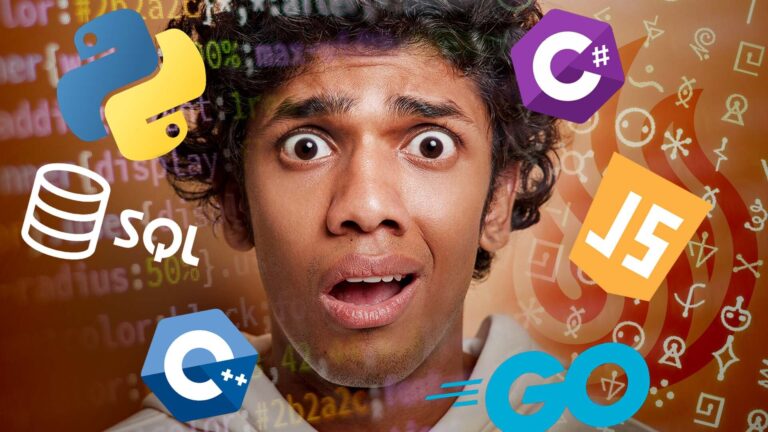Do you have a passion for computers and technology? Interested in learning more about cloud computing? Cloud computing refers to the delivery of computing services like servers and analytics over the Internet to drive innovation and optimize data and software storage, and it is an ever-growing field. If you’re interested in becoming a cloud architect, practitioner or developer, you may be wondering, “Where is the best place to start?” The field of cloud technology is wide and can be complex, but vocational schools and training certification programs break down the basics and offer hands-on software development activities to quickly scale your knowledge.
How Do I Get Trained in Cloud Computing?
A great way to get trained in cloud computing is by obtaining a cloud computing certification. Being certified allows you to earn credibility when you interview for cloud-related jobs and can also set the foundation of learning for a lifelong career in technology. There are several great certification programs offered by major cloud computing technology companies, but one that focuses on scaling learning quickly and efficiently is the Amazon Web Services Academy Certification.
Which Cloud Computing Certification Should I Obtain?
The Amazon Web Services Academy is an introductory certification open to all levels of expertise. Institutions, educators, students and employers can all benefit from enrollment. AWS Academy helps bridge the gap between industry and academia by providing institutions with cloud-computing curriculum to help students learn foundational skills in an ever-growing industry. AWS tailors’ certifications by the role you’re interested in perusing, or by solution, like data analytics, storage and databases. To earn an AWS Cloud Computing Certification, you must complete a certification exam. Being certified can help grow your earning power, open new cloud-computing opportunities and develop your own technical knowledge.
How Can I Prepare for the AWS Academy Certification Exams?
The easiest and most efficient way to prepare for the AWS Cloud Computing Certification Exam is to take a program from an Amazon Accredited Educator. They integrate both lecture and hands-on experiences that allow you to earn one or more different AWS certifications. Amazon Accredited Educators have taken all necessary AWS Cloud Computing training and are well-adept in giving students the right tools and skills to launch successful cloud-computing careers. Educators often have experience working in cloud-computing fields and can help you grow your professional expertise. These programs offer both lecture style courses, as well as real world laboratory activities, allowing you to practice your knowledge in action.
You are encouraged to work at your own pace and receive the benefit of one-on-one feedback from an expert, allowing you to understand and fix development mistakes in real time. After you complete an AWS course, Accredited Educators will give you the necessary study guide and preparatory materials to prepare for you for the certification exams and land a competitive, cloud-computing role. You may start learning the cloud computing basics by completing your foundational certification, certifying you as a Cloud Practitioner. You can then work your way up to a Solutions Architect or DevOps Engineer through higher certification programs. AWS also offers certifications in specialty cloud-computing domains, like Machine Learning and Security.
What Will You Learn During a Cloud Computing Certification Program?
Cloud computing certification programs cover many topics. During a cloud computing certification program you will learn:
Foundations of Computing
This part of the program teaches you the core concepts of cloud computing, including practices in foundational cloud computing infrastructures and the types of services. This course may also cover the fundamental layers of cloud computing, including physical, virtual and service, as well as the basics of building cloud architectures and applying software development techniques. A foundational background may also give you special insight into best practices for security, identity and compliance across cloud technologies, and the history of cloud computing.
Introduction to Scripting
An introduction to scripting will give you an overview of scripting languages, which may include Python, Java and C++. Understanding programming languages will help you design cloud platforms that are programmed to run specific applications on different systems. Because cloud technologies can be manipulated into an infinite number of solutions, understanding the different programming languages will help you stand out in the cloud computing field.
Software Development in the Cloud
Understanding the strategic benefits of deploying and managing software development in the cloud is crucial. A software development course will outline how to configure and develop secure cloud-based applications and scale them for deployment, outlining common fixes and de-bugging techniques as well as best practices when using AWS.
Data Storage and Management
A data storage and management module will cover how to successfully manage data in the cloud with AWS, including configuring object storage solutions and lifecycle management in the AWS web service Simple Storage Service (S3). This may also include learning how to migrate, back up and replicate data and manage disaster recovery processes.
SynOps in the Cloud
SysOps, or System Operations, refers to administrating a multi-user computer system of internet-based network services. With the development of cloud computing, SysOps administrators can now manage multi-user systems with ease, as well as manage and maintain servers. With an AWS Certification in SynOps administration, you can become an expert in deploying, managing and running operations on the AWS platform, including managing application lifecycle and running patch management and updates.
Cloud System Architecture
By using real-world, test-case scenarios and applying practical learnings, you can transform into a full-fledged cloud architect building secure and high-performing cloud infrastructures. This part of the course may outline how to design for high availability, the pillars of the AWS Well-Architected Framework, and best practices for diagnosing and differentiating between specific architectures.
Other use cases for cloud computing
Cloud computing has many use cases that you will learn how to use within your role as cloud architect or developer. They include:
SaaS
Software as a Service (SaaS) gives users a completed product that is run and managed by a service provider. By using SaaS, the end-user doesn’t have to think about maintaining the service or managing the underlying infrastructure, instead only applying the piece of software to a business practice. When you use web-based email, for example, you are using a SaaS application. With web-based email, you can send and receive emails without having to manage underlying servers, feature additions or operating systems that the email program is running on.
Big Data Analysis
Big data analytics has been a growing trend in the past decade as new technologies allow cloud computing architects and developers to collect, store and critically analyze an abundance of data for greater, actionable insights. Big Data Analysis is the process of uncovering common trends and correlations in large amounts of raw data. By analyzing data for commonalities, businesses can make better, more data-informed decisions to drive smarter business practices. Data engineers use statistical analysis techniques to collect, process and scrub data to turn it into advanced analytics, using methods like data mining and predictive analysis.
IaaS
IaaS, or Infrastructure as a Service is a form of cloud computing that provides access to computing resources. These may include servers, networking features, computers (virtual or on dedicated hardware), operating systems and data storage space through virtualization technology. IaaS is highly flexible, easy to automate and provides users with managing control over IT resources, mimicking the capabilities of a traditional data center without the physical maintenance. AWS is a common example of IaaS.
DaaS
DaaS, or Desktop as a Service, is another cloud computing offering where a service provider securely delivers virtual desktops and apps from the cloud to end users over the Internet on any device. DaaS utilizes a per-user subscription, making the service easy to scale up for multiple users. The benefits of DaaS are that the provider manages all backend deployment, maintenance and storage, as well as security and desktop applications, making it a great solution for organizations looking to outsource their virtual desktop infrastructure systems.
DRaaS
DRaaS, or Disaster Recovery as a service, is a critical cloud computing service model that provides disaster recovery hosted in a third-party cloud computing environment. DRaaS allows organizations to back up and replicate their data and IT infrastructure in a physical or virtual service hosted by the provider in the case of a power outage or other disaster that would interrupt business operations. In this case, the remote vendor could support the customer in recovering data.
BaaS
Backend as a Service, or BaaS is another cloud computing model platform where developers can outsource tedious, backend side development to a third-party of a web or mobile application, allowing them to only focus on frontend maintenance. Because backend development can be time-consuming and expensive, BaaS bundles infrastructures, including APIs, to save developers the time of powering and managing their development. BaaS is often employed when developers are building game apps, websites, chatbots or other application developments that need to be scaled and implemented quickly.
Ready to learn more about the certificate program offered at University of Silicon Valley in cloud computing? Our comprehensive Computer Science & Engineering degree programs are taught by entrepreneurs who are in the thick of the industry. At University of Silicon Valley, the certificate of cloud computing offers students industry-driven training in computing, with a focus on concepts, techniques, and technology relevant to cloud computing. The program offers an introduction to fundamental concepts in computing and information technology. Students learn valuable skills derived from industry-leading cloud providers including Amazon Web Services. Graduates of this certificate will be ready for the AWS Academy program and the Silicon Valley workforce.
University of Silicon Valley is uniquely poised to offer a meaningful and valuable education for 21st century students. We believe in an education that directly correlates with the work you’ll be doing after you graduate. Interested in learning more? Contact Us today.


